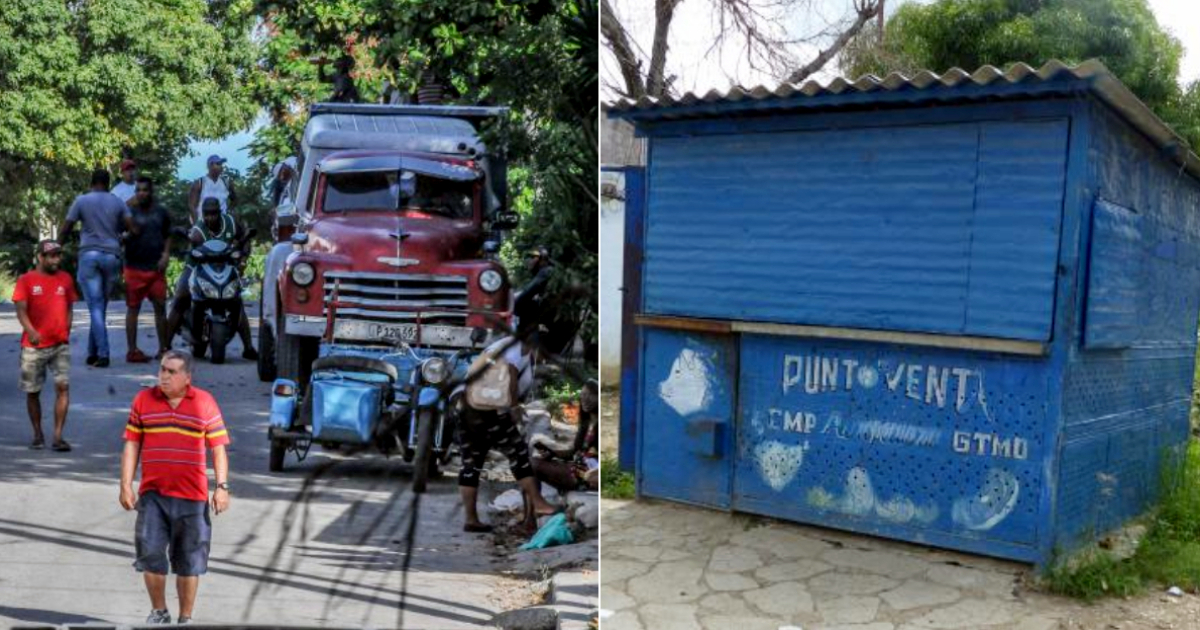The Cuban government has intensified its crackdown on the informal economy, specifically targeting kiosks and sales points along highways and major roads. In a recent meeting led by Manuel Marrero Cruz, the Council of Ministers approved a set of actions aimed at eliminating irregularities found in these establishments. According to authorities, these issues include illegal construction, tax evasion, violations of urban planning regulations, and lack of formal contracts.
This operation is part of a series of increasingly frequent crackdowns on activities deemed "illegal" by the regime. In mid-February, the Communist Party of Cuba (PCC) called for a campaign against the crimes and illegalities proliferating across the nation. "The leadership of the Revolution has reiterated the call to close ranks and act with a firm hand, with determination, without leniency, and in compliance with the Law, as has always been done against these criminal manifestations," stated the official newspaper Granma.
As the new fuel and passenger transport prices in Cuba were about to take effect (February 1st), traffic inspectors were mobilized in a campaign against "illegalities," sparking outrage among drivers and passengers. In 2023, the government increased police operations on the National Highway, imposing fines of up to five thousand pesos on food and beverage vendors. More recently, in April 2024, fines against self-employed workers reached 390 thousand pesos, highlighting the growing pressure on informal workers.
This crackdown on small businesses is not an isolated incident. In March, the regime launched similar actions against private transport operators, accusing them of overcharging and tax evasion, resulting in fines of up to 8,000 pesos for drivers in Havana. Similarly, sellers at agricultural fairs have faced penalties of up to 15,000 pesos for alleged irregularities in their operations.
The Council of Ministers justified these measures by citing the need to ensure "compliance with urban planning regulations" and maintain "territorial order." However, this approach has been heavily criticized for its negative impact on the informal economy, a sector that has grown due to the government's inability to meet the basic needs of the population.
Roadside vendors and private transport operators play a crucial role in compensating for the lack of public services amid a prolonged economic crisis. Although Marrero Cruz claimed that the government holds "nothing against" these sales points, the actions taken by the Institute of Territorial and Urban Planning (INOTU) are seen as an attempt to maintain strict control over economic activity, often leading to permanent closures or corruption cases involving inspectors.
While authorities insist on regulating these activities, punitive policies continue to be viewed as a blow to the most vulnerable sectors, exacerbating the precariousness of an already struggling economic system.
Understanding the Impact of Cuba's Crackdown on Informal Economy
What is the Cuban government targeting in its crackdown?
The government is focusing on kiosks and sales points along highways and major roads, aiming to eliminate illegal construction, tax evasion, and violations of urban planning regulations.
How have informal workers been affected by the crackdown?
Informal workers have faced increased fines and pressure, with food and beverage vendors and private transport operators being particularly affected, receiving fines of up to thousands of pesos.
Why is the informal economy important in Cuba?
The informal economy is crucial because it helps fill the gap left by insufficient public services, especially during the ongoing economic crisis.
What criticisms have been made against the government's approach?
Critics argue that the government's punitive measures harm the most vulnerable sectors, worsening the already difficult economic situation in the country.
